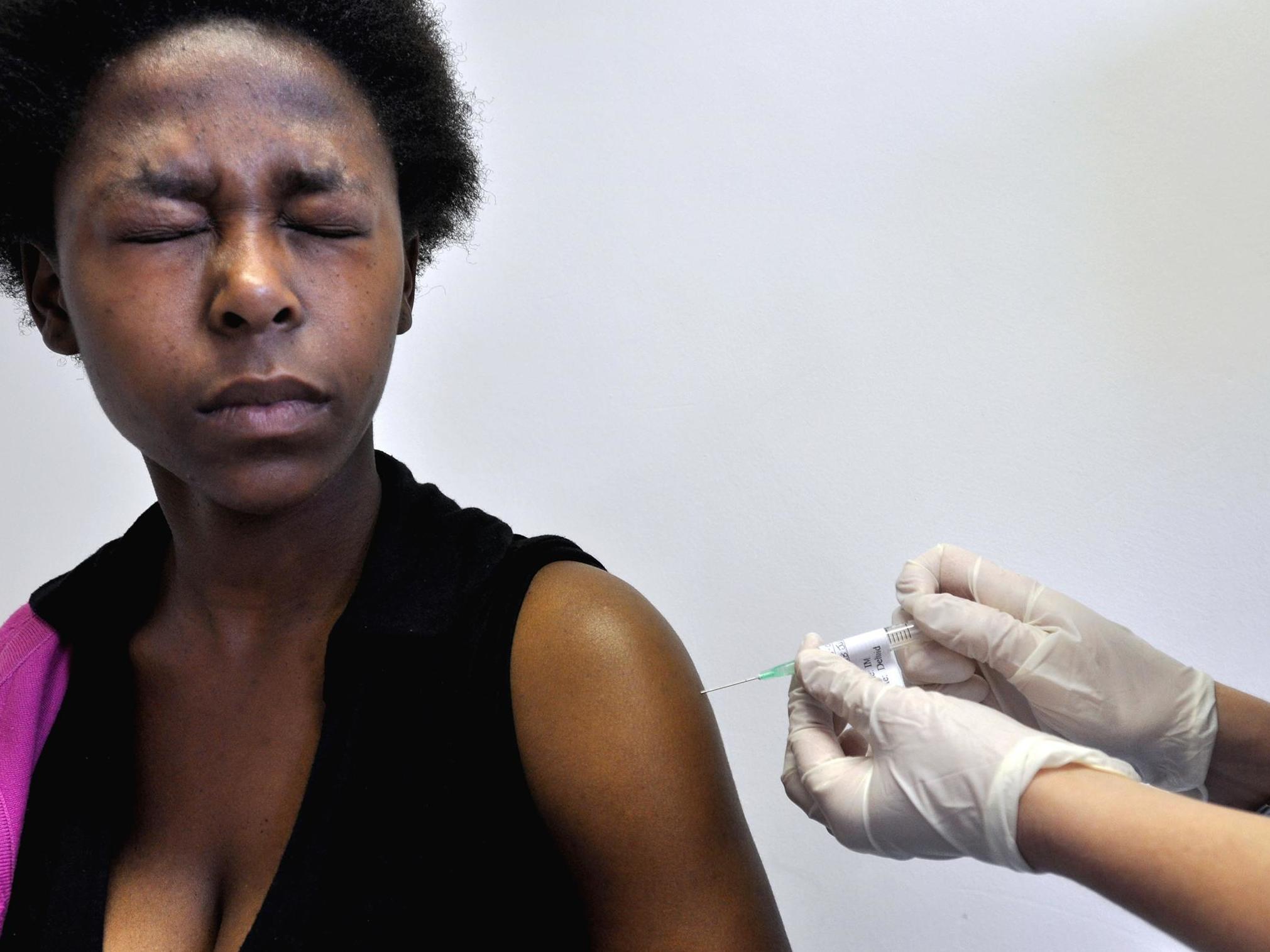Risks of flu vaccine in pregnancy debunked in major study
'In this era of “anti-vaxx” anxiety and misinformation, it is our duty to be clear: vaccination of pregnant women saves lives'

The claims of anti-vaccine sceptics that pregnant mothers who have the flu jab increase the risk of their child suffering health complications have been thoroughly debunked in a major new study.
Around 104,000 children were followed throughout their first five years by Canadian researchers, including 31,000 whose mothers received the H1N1 influenza vaccination during the 2009 "swine flu" outbreak.
They found no sign that maternal vaccination raised the risk of developmental conditions like autism, or respiratory infections, ear infections, cancers, sensory conditions, emergency hospitalisations, long term conditions or death.
The researchers, from the Children’s Hospital of Eastern Ontario, did identify a small, 5 per cent increase in rates of childhood asthma in the maternally vaccinated group.
But rates of stomach and digestive complaints in this group were 6 per cent lower and the researchers said there was no obvious "biological mechanism" which would explain either effect so it could be down to chance.
The famous faces of the anti-vaccine movement
Show all 7Safety concerns are commonly cited as a reason for the low uptake of vaccinations among pregnant mothers.
Fewer than half of pregnant women in England were vaccinated in 2017-18 and rates are even lower in parts of Europe and North America.
However, official recommendations in the UK and most other countries are that every expectant mother should have the jab, as they are a high risk group alongside the elderly and very young children.
There has been growing concern among health organisations about "vaccine hesitancy", driven in part by the rapid spread of fearmongering "myths" about vaccine's harms on social media.
The current wave of anti-vaxxer sentiment began with the discredited researcher Andrew Wakefield, who claimed the childhood MMR jab was linked to autism.
They were amplified again when the 2009 swine flu pandemic, which killed up to 575,400 people according to the US Centre for Disease Control, saw a global push to increase vaccination rates.
Several studies have shown the flu jab is not linked to an increase in pregnancy complications like stillbirth, or premature birth, but the latest finding published in the BMJ medical journal extends it into early childhood.
"Overall, our findings indicate that 2009 H1N1 influenza vaccination in pregnancy was not associated with negative five year health outcomes in children," the authors said.
Independent experts said the findings should remind doctors of their need to give patients the facts "loudly and clearly".
"In this case, vaccination of pregnant women averts a small but serious risk of death and morbidity for the mother and a chance of death of the foetus," writes Siri Håberg, of the Norwegian Institute of Public Health in a BMJ editorial.
"A fear of harm to the child is ungrounded—children have no remotely comparable risk. Especially in this era of “anti-vaxx” anxiety and misinformation, it is our duty to be clear: vaccination of pregnant women saves lives"
Subscribe to Independent Premium to bookmark this article
Want to bookmark your favourite articles and stories to read or reference later? Start your Independent Premium subscription today.

Join our commenting forum
Join thought-provoking conversations, follow other Independent readers and see their replies